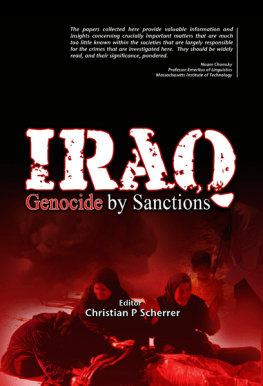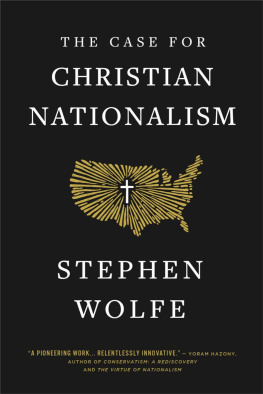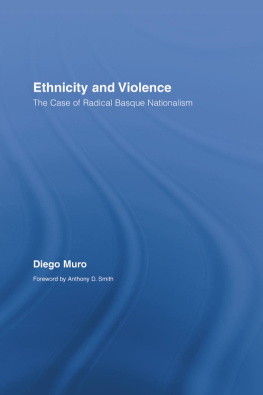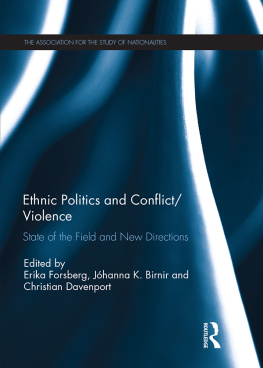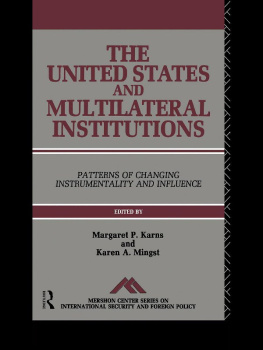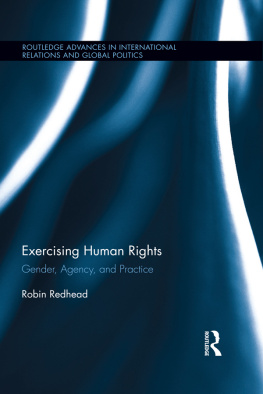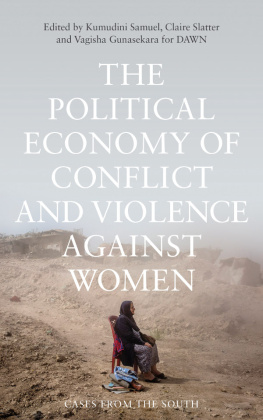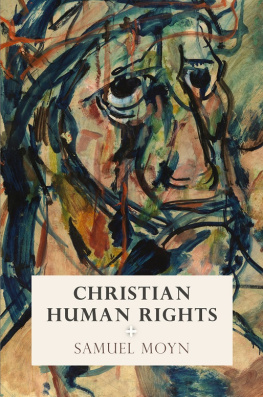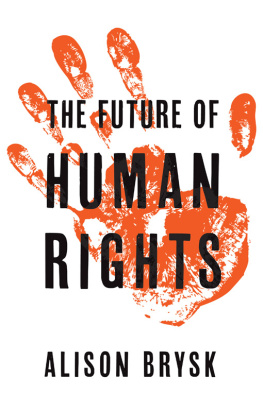ETHNICITY, NATIONALISM AND VIOLENCE
Ethnicity, Nationalism and Violence
Conflict management, human rights, and multilateral regimes
Christian P. Scherrer
Hiroshima Peace Institute, Japan
First published 2003 by Ashgate Publishing
Reissued 2018 by Routledge
2 Park Square, Milton Park, Abingdon, Oxon OX14 4RN
711 Third Avenue, New York, NY 10017, USA
Routledge is an imprint of the Taylor & Francis Group, an informa business
Copyright Christian P. Scherrer 2003
The author has asserted his moral right under the Copyright, Designs and patents Act, 1988, to be identified as the author of this work.
All rights reserved. No part of this book may be reprinted or reproduced or utilised in any form or by any electronic, mechanical, or other means, now known or hereafter invented, including photocopying and recording, or in any information storage or retrieval system, without permission in writing from the publishers.
Notice:
Product or corporate names may be trademarks or registered trademarks, and are used only for identification and explanation without intent to infringe.
Publishers Note
The publisher has gone to great lengths to ensure the quality of this reprint but points out that some imperfections in the original copies may be apparent.
Disclaimer
The publisher has made every effort to trace copyright holders and welcomes correspondence from those they have been unable to contact.
A Library of Congress record exists under LC control number: 2002074711
ISBN 13: 978-1-138-72213-2 (hbk)
ISBN 13: 978-1-315-19380-9 (ebk)
Christian P. Scherrer (Dr. phil., University of Bern 1985) is professor for Peace Studies at Hiroshima Peace Institute (HPI) of Hiroshima City University, Japan. He is the head of the Ethnic Conflict Research Project (ECOR), an independent research project, since its foundation in 1987, and conducted 1986-2002 field research in a number of areas of violent conflicts on four continents. He also worked for international organizations (ICRC, IJNCHR) and contributed expertise to a number of institutions, among them the Conflict Prevention Network of the European Commission and the Development Assistance Committee of the OECD. For the UN High Commissioner for Human Rights he conducted genocide investigation in Rwanda's southern Butare province and elaborated a study on Justice-inTransition and Conflict Prevention in Post-Genocide Rwanda. He is the editor of the ECOR studies and compiler series and the author of the first ever series of handbooks on ethnicity and state in conflict ( Ethno-Nationalism, vols. 1-2. Mnster: agenda 19967; IFEK-IRECOR 1998-2003). From 1997-1999 he was senior researcher at Copenhagen Peace Research Institute, responsible for building up the new project on 'Intra-state Conflicts and Peace Strategies', and from 1999-2001 he was research director at the Institute for Research on Ethnicity and Conflict Resolution (IRECOR). In recent years he contributed to a new multi-dimensional theory for a better understanding of contemporary mass violence as well as to policies and procedures for its prevention ( Structural Prevention of Ethnic Violence. Palgrave 2002). In a book on the Rwandan genocide from a comparative perspective he discussed possible responses to genocide (Campus 1997), followed by a totally revised English version Genocide and Crisis in Central Africa (Praeger 2002) and a volume on Responses to Genocide (forthcoming).
Since 1945, more than 300 wars have taken place worldwidemost of them, until the end of the 1980s, in the Third World. The claims of so-called nation-states in regard to the nationalities, which they claim as their own citizens, and in regard to ethnic minorities and indigenous peoples, became increasingly aggressive. On the view presented here, this state of affairs is, in empirical-cum-historical terms, the most dangerous potential and actual source of conflicts and wars both in the former Third World and, since 1989-90, in the former nominally socialist multinational states. Almost two-thirds of current violent conflicts are susceptible of ethnic interpretation. It was only when the Janus-like countenance of nationalism reappeared in Europe that the Western media and broad sections of the public became aware of this global trend towards ethno-nationalism, of which there had been evidence since half a century, more precisely since the period of decolonization. Ethno-nationalism, this last wave of nationalism, has been in different stages of the process of reviewing the situation left behind by the colonial world-order. Its duality has to do with an inherent dichotomy between liberation and oppression, between emancipation and barbarity.
Against the background of media discovery of the ethnic phenomena and of the general inadequacy of research into the forgotten conflicts raging in many parts of the world, this study first attempts (in deals with the challenge ethno-nationalism poses to the nation-state and the danger emanating from the ethnicization of social or political conflict.
critically reviews the activities undertaken by international and humanitarian organizations in ethnic conflicts and also the efforts of the United Nations, such as the Human Rights Commission and the International Labour Organization (ILO) to work out minimum standards for the rights of minorities and indigenous peoples. The observations on multilateral regimes are confined, for the most part, to the 'human dimension'that is to say, to human-rights mechanisms and minority rights issues. New paths in this direction have been embarked on within the framework convention of the Council of Europe and the Organization for Security and Cooperation in Europe (OSCE, formerly the CSCE process). However, speculations about the transposability of European 'models' must be viewed with scepticism. Reflection on increasing calls since the early 1990s for the United Nations to become involved, or to intervene militarily, in zones of war and non-war mass violence, genocide in particular, underlines the primary need for structural prevention and for an expansion in the choice of non-military options. To round off this part of the discussion, a few observations are made about a possible new role for the United Nations in the 21st century.
This choice of objectives necessitates an interdisciplinary approach and moving beyond a narrowly defined standpoint. As a field of study, ethno-nationalism and ethnicization embrace the disciplines of social anthropology, the humanities, human geography, political science, international relations, and constitutional and international law. At present, the needs created by interdisciplinary co-operation have still only very limited institutional possibilities corresponding to (or rather conflicting with) them. The use of concepts borrowed from several disciplines is a necessity in the area of peace research, but it does not in itself constitute interdisciplinary.
Another study named Structural Prevention of Ethnic Violence (Scherrer 2002b) outlines and compares various regional and local attempts at conflict resolution within the framework of state policies on minorities and nationalities. An attempt is made to give a conceptual account of the phenomenon of ethnicity. A planned additional volume will illustrate the mapping of contemporary conflict and their possible or intended resolution by means of comparing examples from four different continents.


